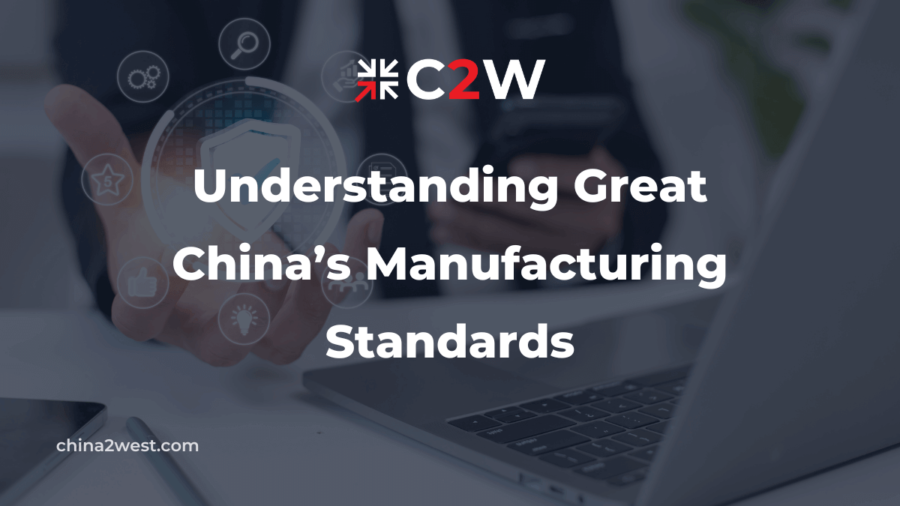In today’s fast-paced and competitive business landscape, companies are constantly looking for ways to streamline their operations and improve efficiency. One method that has gained popularity in recent years is lean manufacturing. Developed from the Toyota Production System, this production philosophy has proven to be effective in reducing waste and increasing productivity. While it may have originated in Japan, lean manufacturing principles can be applied in any production line, including those in China. In this blog post, we will explore how you can implement lean manufacturing in your Chinese manufacturing process to achieve optimal results.
The Philosophy Behind Lean Manufacturing
Lean manufacturing is a production philosophy and management approach that focuses on maximizing efficiency, minimizing waste, and continuously improving processes. At its core, lean manufacturing is all about eliminating non-value-added activities and creating value for customers.
The philosophy behind lean manufacturing can be summarized by its key principles:
- Identifying and eliminating waste
- Creating flow
- Practicing continuous improvement
Waste can come in many forms, such as overproduction, defects, excess inventory, and unnecessary movement. By identifying and eliminating these wasteful activities, companies can streamline their processes and optimize resource utilization.
Creating flow refers to the smooth and uninterrupted movement of materials and information throughout the production process. This ensures that products are delivered to customers promptly and eliminates bottlenecks or delays.
Continuous improvement is a fundamental aspect of lean manufacturing. It involves constantly seeking ways to improve processes, reduce waste, and enhance efficiency. This can be achieved through techniques such as Kaizen, which encourages small, incremental changes over time.
Benefits of Adopting Lean Manufacturing Principles
Lean manufacturing principles, derived from the Toyota Production System, aim to optimize efficiency, eliminate waste, and improve overall productivity in manufacturing processes. Here are five key benefits of adopting lean manufacturing principles:
Reduced Waste
Lean manufacturing focuses on identifying and eliminating various forms of waste, including overproduction, excess inventory, defects, waiting time, unnecessary motion, and over-processing. By minimizing waste, companies can streamline their processes, reduce costs, and enhance overall efficiency.
Improved Quality
Lean principles emphasize a commitment to quality at every stage of the production process. By addressing the root causes of defects and continuously improving processes, organizations can enhance product quality. This, in turn, reduces the need for rework, lowers the rate of defects, and leads to higher customer satisfaction.
Increased Efficiency
Lean manufacturing promotes the concept of continuous improvement, encouraging employees to identify and implement changes that enhance efficiency. By optimizing workflow, reducing lead times, and increasing the flow of work, organizations can produce more with fewer resources, leading to increased productivity.
Continuous Improvement
Lean manufacturing promotes continuous improvement. By actively seeking ways to enhance processes and reduce waste, you can ensure that your operations are always evolving and staying ahead of the competition. This mindset of continuous improvement fosters a culture of innovation and collaboration, empowering your employees to contribute their ideas and expertise.
Enhanced Flexibility and Responsiveness
Lean manufacturing principles enable companies to become more agile and responsive to changes in customer demand. By implementing practices such as just-in-time production and maintaining low inventory levels, organizations can adapt quickly to shifts in market trends and customer preferences, avoiding overproduction and excess inventory costs.
Employee Engagement and Empowerment
Lean manufacturing encourages a culture of continuous improvement and employee involvement. Team members are empowered to identify problems, propose solutions, and contribute to the overall improvement of processes. This not only boosts morale but also taps into the collective intelligence of the workforce, fostering a sense of ownership and commitment.
Strategies for Applying Lean Manufacturing
Implementing lean manufacturing principles in your Chinese production line can greatly improve efficiency and productivity. Here are some strategies to help you apply lean manufacturing to your production line.
Identify and Eliminate Waste
Conduct a thorough analysis of your production processes to identify areas of waste, such as overproduction, excessive inventory, and unnecessary movement. Once identified, take steps to eliminate or minimize these wasteful activities. This may involve implementing Just-In-Time inventory systems, implementing standardized work procedures, or reorganizing workstations for better flow.
Create Value Stream Maps
Develop value stream maps to visualize the entire production process, from raw materials to the finished product. This helps identify areas of waste and opportunities for improvement. Analyze the value stream map to streamline the flow of materials and information, reducing lead times and improving overall efficiency.
Implement 5S Methodology
Sort, Set in Order, Shine, Standardize, and Sustain (5S) is a system for workplace organization and standardization. It helps create a clean and efficient work environment. Ensure that work areas are organized, tools are properly stored, and the workspace is regularly cleaned.
Implement Just-In-Time (JIT) Production
Adopt a just-in-time approach to minimize inventory levels and production lead times. Coordinate production with customer demand to reduce excess inventory, storage costs, and the risk of obsolete products.
For businesses seeking to implement lean manufacturing principles in their Chinese production lines and benefit from local expertise, consider partnering with our team at China 2 West. With a rich legacy dating back to 2005, C2W is a China-based contract manufacturing company committed to providing comprehensive solutions for efficient and optimized production processes. Contact us today to embark on a journey towards enhanced productivity, reduced costs, and a competitive edge in the dynamic global market.


